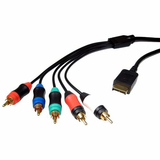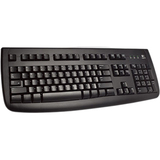Burnout Paradise includes all the fast-driving, hard-wrecking action
 you'd expect from a Burnout game, but with a fantastic new open-world design that gives it its own stand-alone flavor.
you'd expect from a Burnout game, but with a fantastic new open-world design that gives it its own stand-alone flavor.The Good
Racing and wrecking is as thrilling as ever
Open-world design creates a great sense of destructive freedom
Showtime mode is a hoot
Online functionality is seamless and addicting
Superb visuals.
The Bad
Could have used more variety in race and event types
Soundtrack and DJ dialogue are awful
Early in the game, you'll probably be a little confused and overwhelmed by the whole thing.
The star of the show is Paradise City itself. Coming complete with the titular Guns 'N Roses song (because Burnout: Night Train or Burnout: Mr. Brownstone probably wouldn't have been as catchy), Paradise City is, at first blush, a pretty standard racing game city, complete with all the usual landmark locations and boring background traffic. But it quickly becomes evident that Paradise City is meant for a greater purpose than just being a simple city to race around in. In effect, the city is a blank slate, a pristine canvas on which to paint your own obliterative masterpiece. The simple act of driving aimlessly around the city constantly presents new roads, shortcuts, and destructible objects for you to experience and, often, destroy. Nearly every intersection of road hosts a new event of some kind, and even after you've worked your way through the game's progression of driver's licenses (the only specifically linear portion of the game design), you'll still be finding new things you didn't even know were there.
That might sound a little overwhelming, especially if you've grown accustomed to the rather specific brand of racing that Burnout has always subscribed to. And at first, it most definitely is. Though the in-game tutorials do a decent job of explaining the event types and basic mechanics, you're initially left to your own devices and only have the small minimap to guide you through the many twists and turns of the city as you race--unless of course you want to hit the pause button regularly and use the larger map, which is a bit annoying to do. Those well accustomed to Burnout's previously track-based racing model might find having to explore to find the best route to the finish a bit frightening, but the good news is that it doesn't take a great deal of time to get a feel for the city's various ins and outs.
Until that time, you will experience some trial and error (with a heavier focus on the error), but the funny thing about that is that while you may initially find yourself failing races, it's not often you have to just go back and keep doing that same race again and again. The focus of Burnout Paradise isn't on doing specific events so much as it is about doing whatever you feel like. If you fail a race, odds are that there are roughly a dozen starting points for other races near the finish line of that previous race, and unless you've done them all, you can just hit up any one of them to get another notch on your license. Toward the very end of the game, when you've bested the bulk of the game's events, you may find yourself lamenting the lack of a quick return feature to get back to a race's starting point. But for the majority of the game, it's not really an issue.
Paradise's visual presentation is precisely the kind of top-notch work you've come to expect from the series. Once again, the game sets a standard for how a sense of speed should feel in an arcade racer. This game is lightning fast, and the frame rate in both the Xbox 360 and PlayStation 3 versions of the game holds up regardless of the chaos onscreen. The car crashes in this game are absolutely fantastic, thanks to some dynamite particle effects and camera work in each and every mangled wreck. Cars deform to wonderful effect, scrunching up like an accordion in head-on collisions and bending and twisting nicely in other situations. The only thing that continues to look a little weird is the total lack of drivers in all the cars around the city. It's understandable that Criterion would leave out mangled corpses or what have you for the sake of an E 10+ rating, but it still looks strange seeing all these disembodied cars driving around like a society of Turbo Teens.
Paradise's visual presentation is precisely the kind of top-notch work you've come to expect from the series. Once again, the game sets a standard for how a sense of speed should feel in an arcade racer. This game is lightning fast, and the frame rate in both the Xbox 360 and PlayStation 3 versions of the game holds up regardless of the chaos onscreen. The car crashes in this game are absolutely fantastic, thanks to some dynamite particle effects and camera work in each and every mangled wreck. Cars deform to wonderful effect, scrunching up like an accordion in head-on collisions and bending and twisting nicely in other situations. The only thing that continues to look a little weird is the total lack of drivers in all the cars around the city. It's understandable that Criterion would leave out mangled corpses or what have you for the sake of an E 10+ rating, but it still looks strange seeing all these disembodied cars driving around like a society of Turbo Teens.
It's also worth noting that Burnout Paradise is a game that commands an HD display, and not just for full graphical effect. On the standard-definition TVs we tried, we found the minimap to be borderline useless unless we squinted like crazy. On an HD set, the minimap is detailed and blown up enough to rely on, but when playing in standard definition, it simply became a hassle to use.
If you're looking for differences between the two versions, you won't find many. The PlayStation 3 version looks maybe a hair crisper than the 360 version, but that's about the only visual difference to speak of. On the flipside, the 360 version has a slight edge in that you can use custom soundtracks to drown out the miserable collection of songs EA has amassed for the game. There are a few highlights that fit well with the theme of high-energy racing, but the vast bulk of the music consists of irritating modern rock that's about as ill-fitting as humanly possible. Avril Lavigne's "Girlfriend" might, itself, be a car wreck of a song, but it doesn't fit the vibe of the game at all. Add in the collection of original Criterion-produced guitar rock tracks from previous Burnout games that sound like they were culled from Joe Satriani's nightmares, and you have a pretty unpleasant musical experience all around. The annoying radio DJ who pops up now and again to give hints, mock you obnoxiously when you fail, and make one glib comment or another about something going on in the city doesn't help matters. He's merely an annoyance that probably wouldn't even be worth mentioning save for the fact that you cannot turn him off. At least the sound effects are still top-flight in every regard. Crashes thunder, engines roar, and tires screech with terrific clarity all throughout the game. If you've got a surround-speaker setup, it's all the better.
If you're looking for differences between the two versions, you won't find many. The PlayStation 3 version looks maybe a hair crisper than the 360 version, but that's about the only visual difference to speak of. On the flipside, the 360 version has a slight edge in that you can use custom soundtracks to drown out the miserable collection of songs EA has amassed for the game. There are a few highlights that fit well with the theme of high-energy racing, but the vast bulk of the music consists of irritating modern rock that's about as ill-fitting as humanly possible. Avril Lavigne's "Girlfriend" might, itself, be a car wreck of a song, but it doesn't fit the vibe of the game at all. Add in the collection of original Criterion-produced guitar rock tracks from previous Burnout games that sound like they were culled from Joe Satriani's nightmares, and you have a pretty unpleasant musical experience all around. The annoying radio DJ who pops up now and again to give hints, mock you obnoxiously when you fail, and make one glib comment or another about something going on in the city doesn't help matters. He's merely an annoyance that probably wouldn't even be worth mentioning save for the fact that you cannot turn him off. At least the sound effects are still top-flight in every regard. Crashes thunder, engines roar, and tires screech with terrific clarity all throughout the game. If you've got a surround-speaker setup, it's all the better.
It's entirely possible that some people might not enjoy Burnout Paradise's significant shift in direction, specifically those who simply wanted another incremental Burnout sequel. Indeed, Paradise is anything but incremental, and while it might prove a polarizing experience for some, most will likely appreciate what a radical overhaul this game really is. The open-world design isn't just a lazy gimmick--it's a wonderfully executed concept that doesn't rob the game of the series' most beloved tenet: the act of driving fast and wrecking hard. If you're one of the people who tried the Burnout Paradise demo and formed a rather negative opinion of the game, you're not alone. But if you have any affection for the series, you really owe it to yourself to give the full game a look. The demo did little to truly represent what a superbly fun racer this game can be.




















































